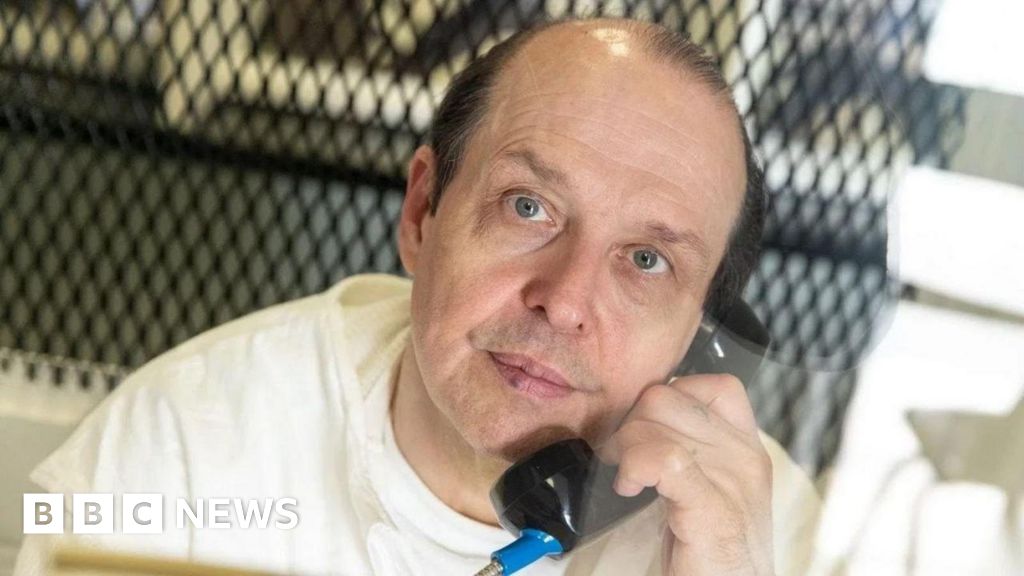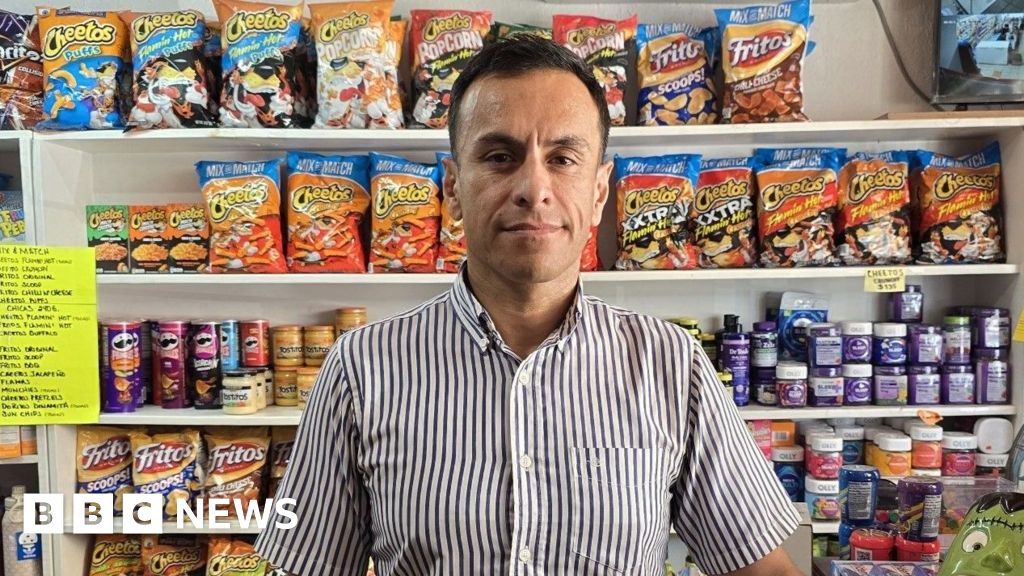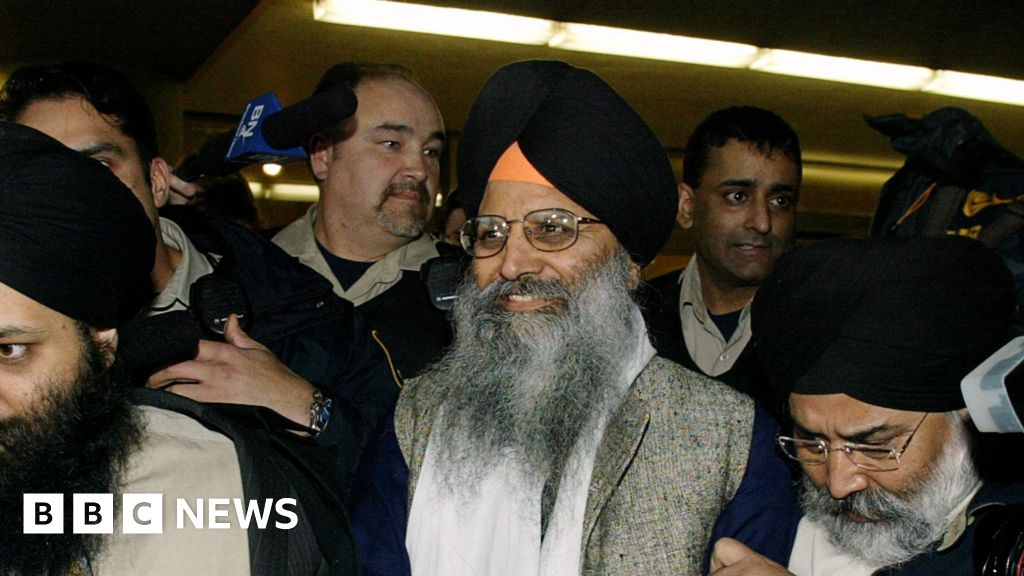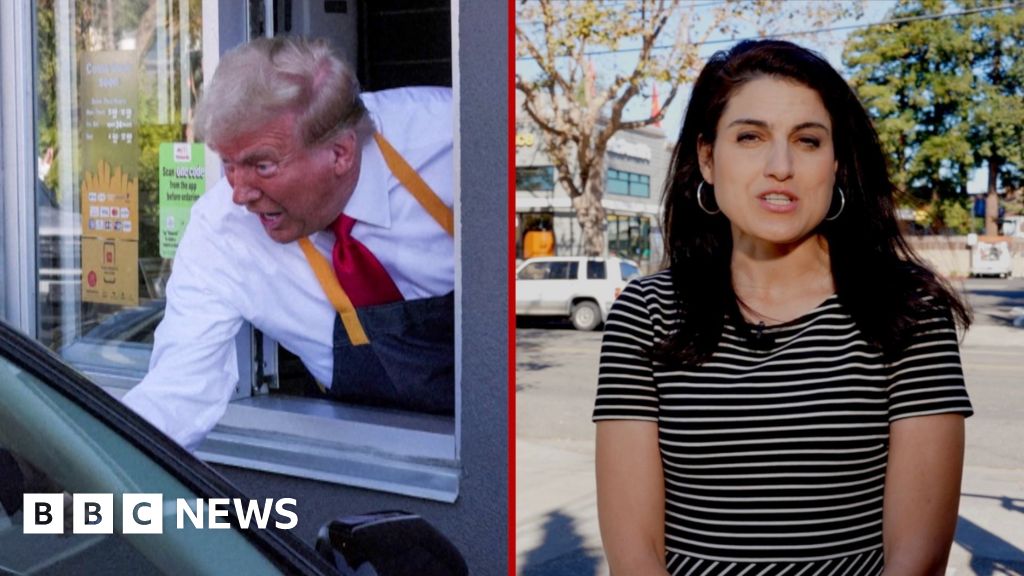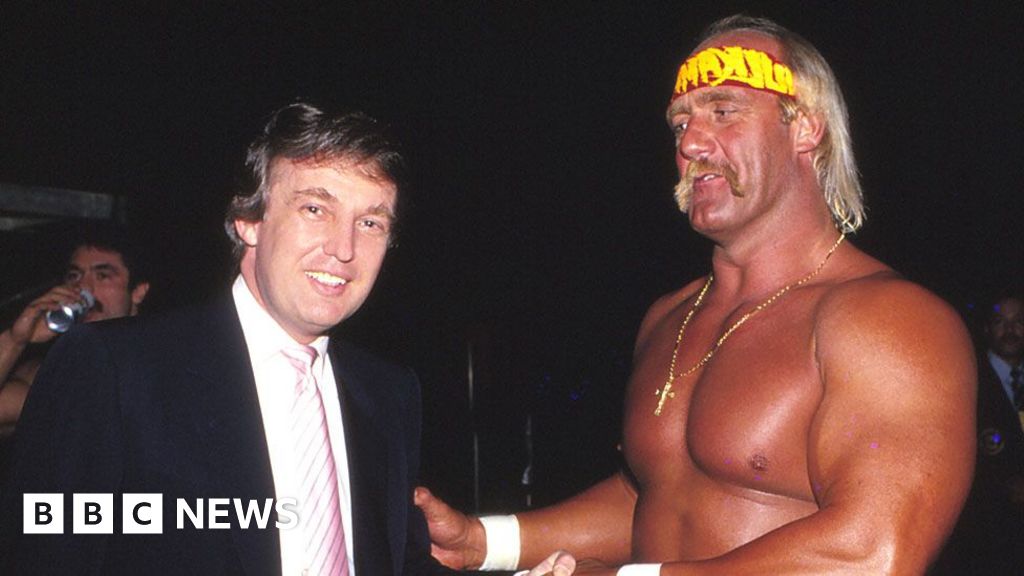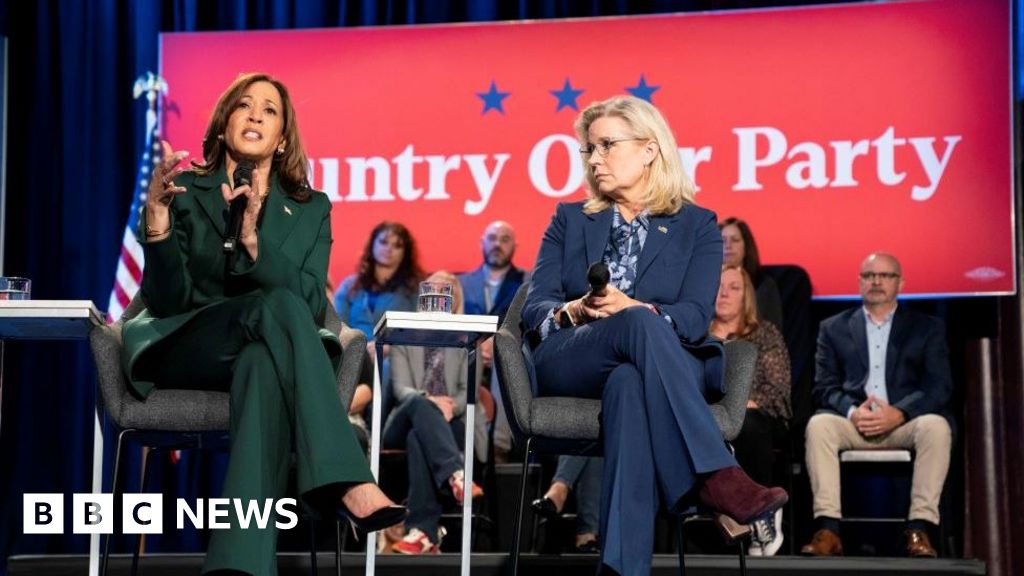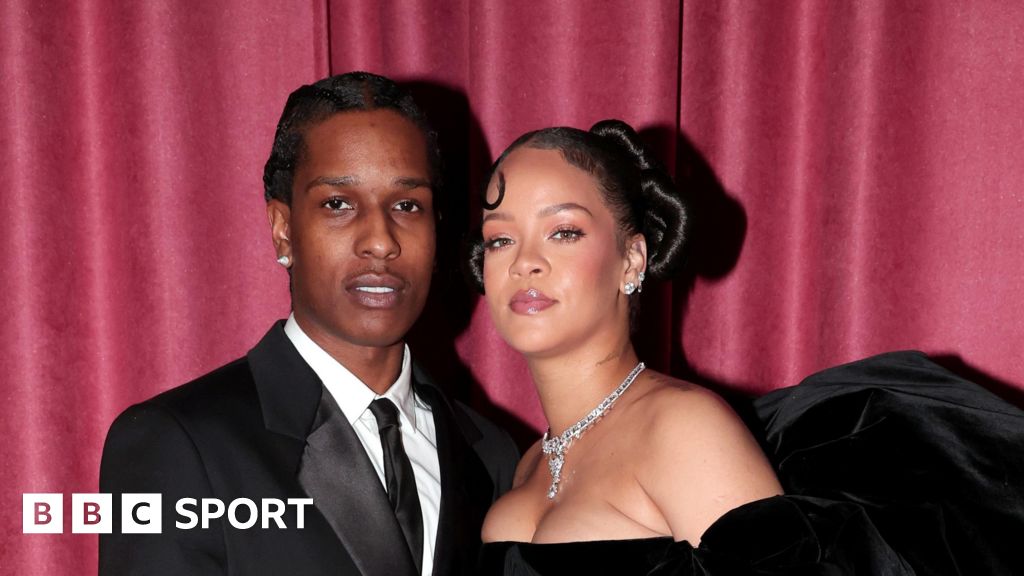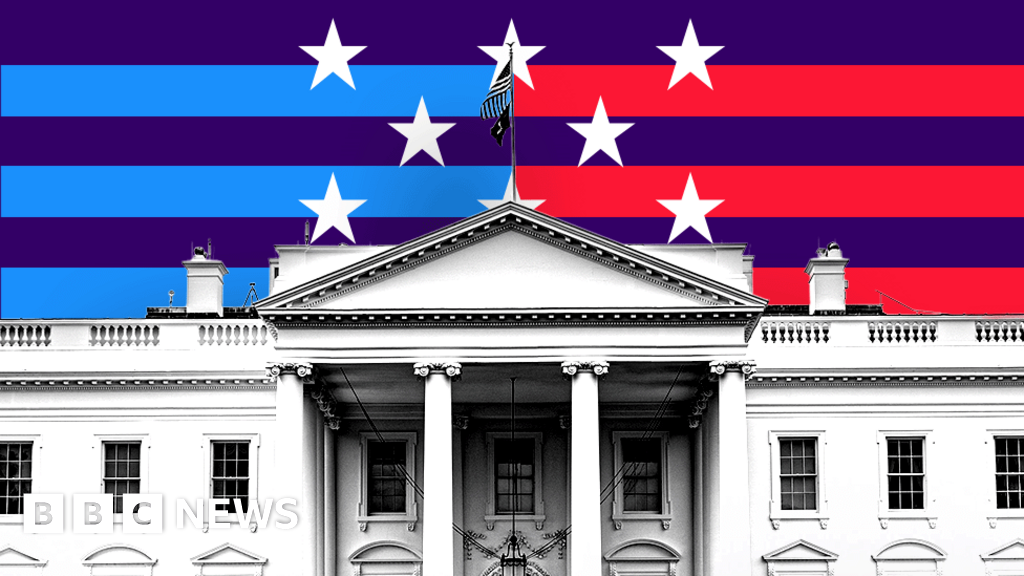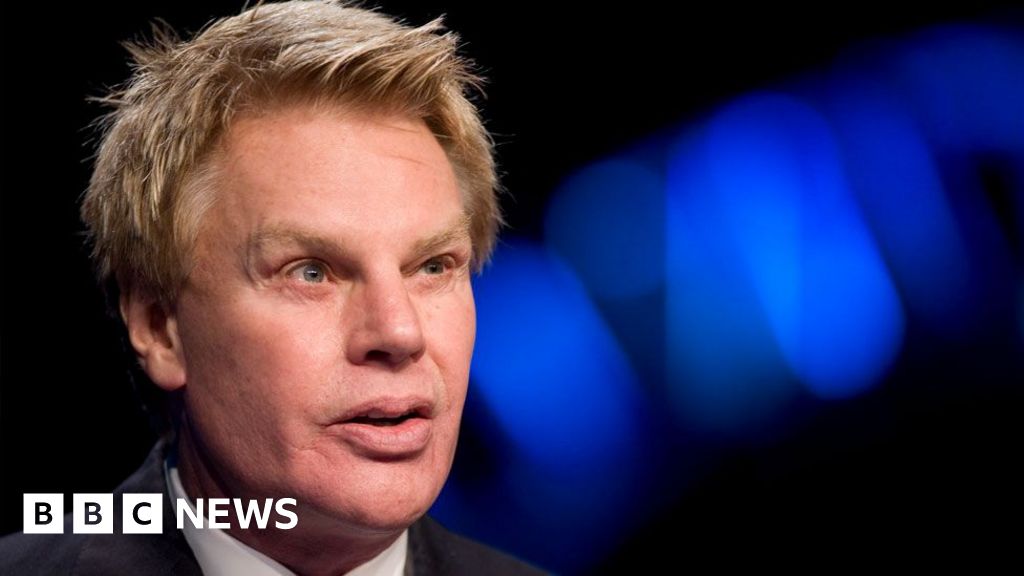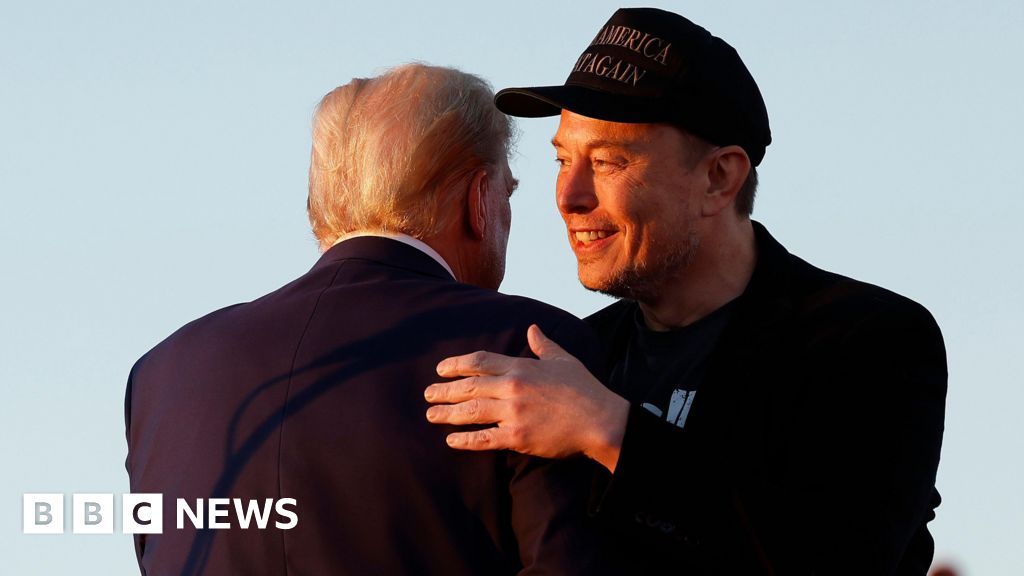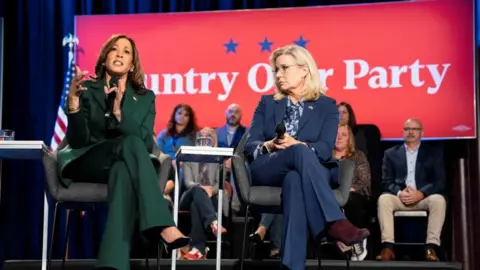 Getty Images
Getty ImagesKamala Harris spent the whole of Monday making a direct pitch to independent and Republican voters in the three states that form the Democratic Party’s so-called “blue wall”.
Two weeks from the election, Harris toured Pennsylvania, Michigan and Wisconsin alongside former Congresswoman Liz Cheney, an outspoken anti-Trump Republican.
While it’s not surprising that Harris visited the most hotly contested battlegrounds of the campaign in its home stretch, she departed from her customary rally-style events.
Instead she chose a “town hall” format alongside Cheney, a series of discussions hosted by figures picked with an eye toward the other side of the political divide.
There was Republican pollster and publisher Sarah Longwell in Pennsylvania and conservative commentator Charlie Sykes in Wisconsin. The third moderator was Maria Shriver in Michigan, niece of JFK and former first lady of California under Republican Governor Arnold Schwarzenegger.
The locations, suburban counties outside each of the state’s largest cities, were also not chosen by chance. They are rich in the kind of college-educated, traditionally Republican voters who polls show have been moving toward Democrats even as some blue-collar voters have drifted away from the party.
It’s a sign of just how dramatically the coalitions supporting the two major parties are shifting in the era of Donald Trump.
According to Craig Snyder, a Pennsylvania-based Republican strategist who is supporting Harris, the Democrats are making a concerted outreach to disaffected Republicans, but hearing from Democrats isn’t enough.
“These voters want to hear from other Republicans,” he said. “They want to hear that they’re not alone.”
Across the three states, Liz Cheney - who co-chaired the congressional committee investigating the 6 January attack on the US Capitol and was ousted in 2022 by a Trump-backed primary challenger - delivered that message.
“You can vote [with] your conscience and not ever have to say a word to anybody,” Cheney said in Michigan. “And there will be millions of Republicans who will do it.”

Harris quickly added that she had seen Republicans approach Cheney and thank her for speaking out against the former president - even if they never say anything publicly.
“From my vantage point, she is not alone,” Harris said.
The crowds at the venues were supposedly filled with Republicans and undecided voters, although the questions were pre-selected and the audience response - nods of understanding and gasps of shock at details of Trump’s political misdeeds and transgressions - suggested they were mostly friendly.
Dan Voboril, a retired schoolteacher in Wisconsin concerned about the toxic nature of Trump’s Republican Party, said he was truly undecided but was considering voting for Harris.
“Come on, Dan,” Cheney urged. The former congresswoman went on to say that partisanship was less important than ensuring that a person of character and principles held the presidency.
“If you wouldn’t hire somebody to babysit your kids, then you shouldn’t make that guy the president of the United States,” she added.
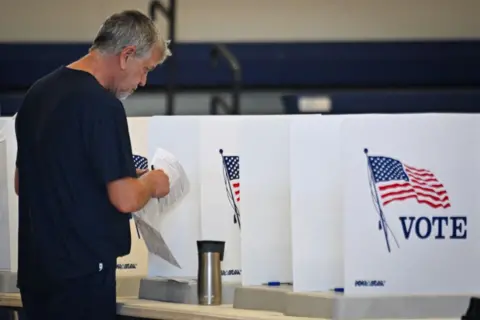 Getty Images
Getty ImagesEarly voting in Florida
Most of the questions during this three-state town hall trip, however, seemed tailor made for Harris to tout key campaign talking points.
A young mother in Pennsylvania asked how she could care for her elderly mother who has dementia.
Harris outlined her plan for government supported in-home nursing care. In Michigan there was a question about Ukraine, allowing both Cheney and Harris to warn that a Trump victory would lead to Vladimir Putin “sitting in Kyiv”.
The isolationist approach to the war adopted by Trump and his running mate JD Vance has struck a chord among Americans who think the billions of dollars spent on aiding Ukraine since Russia invaded would be better spent at home.
Every stop on the Harris-Cheney day tour included a question about abortion and reproductive rights, allowing Cheney - who is anti-abortion - to say Republican states banning the procedure were going too far.
Current public opinion polls show a neck-and-neck race for the presidency nationally and in the blue wall, battleground states.
In 2016, Donald Trump flipped the three traditionally Democratic “rust belt” states that used to be the heart of the American manufacturing industry but Joe Biden won them back four years later.
Most surveys currently show fewer than 10% of Republicans are backing the Democrats.
If those numbers turn out to be understated - if Cheney is right and there are shy Republicans who will ultimately break ranks and vote Democratic - Harris’s path to the White House would become much easier.
At the very least, the Harris campaign decided that the chance to chip away at Trump’s support where it might be soft was worth a day’s effort.

North America correspondent Anthony Zurcher makes sense of the race for the White House in his twice weekly US Election Unspun newsletter. Readers in the UK can sign up here. Those outside the UK can sign up here.


